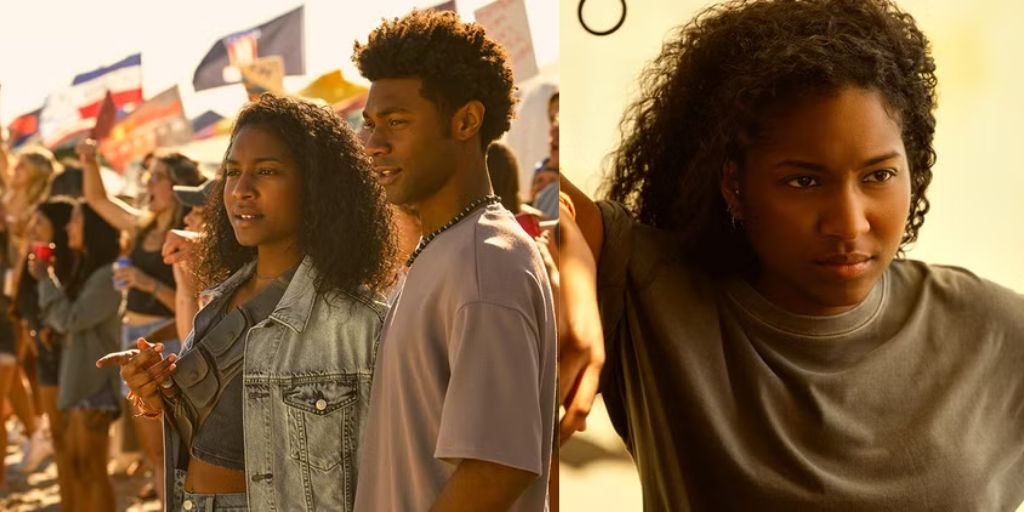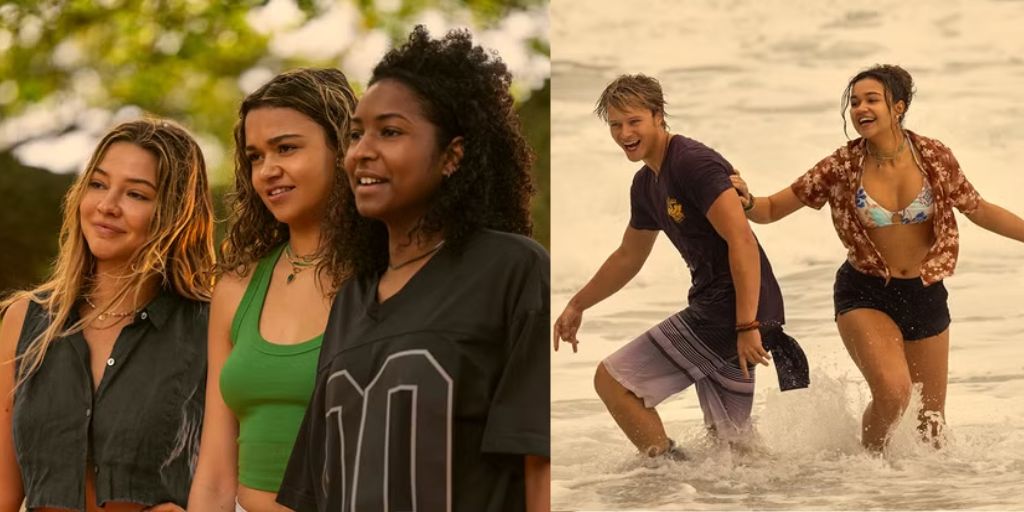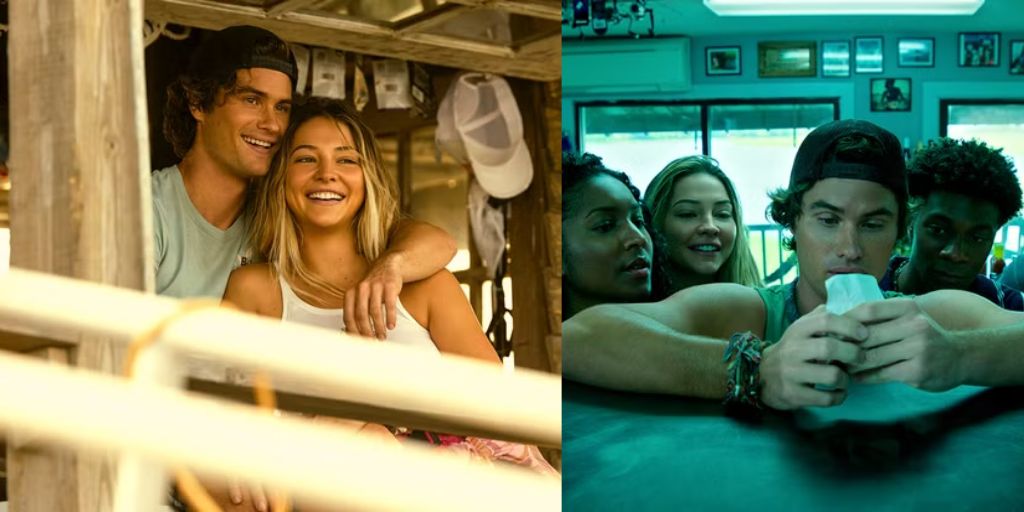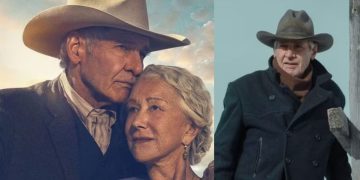Season 4 Part 1 of Outer Banks is now on Netflix. It ends with a big cliffhanger just before Part 2 comes out on November 7. In the first half of Season 4, some characters still deal with what happened in Season 3.
John B (Chase Stokes) often remembers his father, who has now died. Rafe (Drew Starkey) is also trying to cope with his father’s death. At the same time, Sarah (Madelyn Cline) seems to be left out of the emotional storyline, which many fans find frustrating.
John B Struggles With His Father’s Legacy in Outer Banks Season 4 Part 1
In the first three seasons of Outer Banks, the main conflict revolved around Sarah Cameron and her father, Ward (Charles Esten). This tension drove the story as Ward and the Pogues raced to find treasure. However, as Season 4 begins, Sarah seems to be defined more by her relationship with John B than her own struggles.
She lost her father in the Season 3 finale, which should have had a significant impact on her character. Unfortunately, the show does not seem to give her the attention she deserves. In contrast, her brother Rafe has moments where he openly grieves for their father, hoping to honor him by buying property and making something of himself.
The loss of her father should have been a pivotal moment for Sarah, but it feels as though her character has been pushed aside. John B’s emotional journey gets a lot of focus, but Sarah’s is hardly shown at all. This lack of character development is disappointing, especially given how her relationship with her father shaped much of the show’s earlier seasons.
The trauma that John B faces after the death of his father, Big John (Charles Halford), is addressed directly in Season 4, particularly in an episode called “Albatross.” In this episode, John B faces his father’s legacy during a key scene in a graveyard in Charleston.
The gang is searching for clues about the Blackbeard mystery. John B holds a gun and prepares to shoot the mercenary treasure hunter Lightner (Rigo Sanchez), who killed his friend Terrance (Terence Rosemore). In this moment, John B stands on the edge of becoming like his father.
While he struggles with his rage and thirst for revenge, flashbacks show Big John murdering people without remorse. At a critical moment, John B puts the gun down and spares Lightner’s life.

He knows that Cleo wants revenge for Terrance’s death, but John B cannot bring himself to pull the trigger, unlike his father would have. This scene shows John B wrestling with the darkness that comes from losing a parent and the fear of becoming a person he does not want to be.
Rafe is Reckoning With His Past and Turning Into His Father
Meanwhile, Rafe is on the verge of becoming a cold-hearted businessman, just like his father. Even though Ward is an antagonist in the show, Rafe looks up to him, which adds complexity to his character. In Season 4, Rafe’s storyline revolves around dealing with his father’s legacy and the trauma that comes from being a part of such a dysfunctional family.
The episode “Albatross” features a significant theme of the trauma that results from losing parents. The writers highlight how this trauma can be passed through generations, often perpetuated by bad parenting. Flashbacks show John B with his father, reminding viewers that the impact of poor parental figures affects multiple characters in the show.
In a powerful moment, Rafe shows vulnerability as he remembers his father. He is haunted by Ward’s last words to him: “Family is the most important thing. Take care of each other.” These words echo throughout the episode, reminding Rafe of the bond that he is struggling to maintain with his sister, Sarah.
The series juxtaposes Rafe’s dark moments, including a terrifying attempt to drown Sarah, with his efforts to reject the path that led his family to dysfunction.
Rafe’s internal conflict is expertly portrayed by Drew Starkey. He presents Rafe as a character with a wavering sensitivity, capable of kindness and cruelty within moments. In an interview with Cosmopolitan, Starkey shared that “you’ve definitely seen Rafe very broken over the years, but I think where you find him this year is hopefully in a place of wanting to be better and to have a sense of family.” This insight adds depth to Rafe’s character and makes his struggles more relatable.
Madelyn Cline Is Underutilized in Season 4 Part 1 of Outer Banks
When it comes to trauma from bad parenting, no one in Outer Banks suffers more than Sarah Cameron. Her relationship with her father, Ward, was fraught with difficulties and pain. As a result, she has a lot of unresolved issues related to her family. Given this background, it is surprising that she has been pushed to the sidelines in Season 4.
Throughout the group scenes, Sarah, played by Madelyn Cline, often has little to say. Instead, the other Pogues dominate the conversations. This lack of dialogue stands in stark contrast to the emotional depth that John B and Rafe receive as they confront their grief. The absence of Sarah’s voice during crucial moments in the story is frustrating for fans who have seen her grow and evolve over the previous seasons.
In the earlier seasons, Sarah was a central figure. She often stood up to her father and fought for her beliefs. Now, most of her scenes revolve around her romantic relationship with John B. This is disappointing because her character deserves more depth especially after losing her father and experiencing betrayal from her brother.
So far, there has not been a single scene that shows how Sarah is dealing with her father’s horrifying death or Rafe’s betrayal. In contrast to the meaningful scenes that John B and Rafe have had reflecting on their fathers, Sarah’s moments in Season 4 feel shallow. One scene stands out, but it focuses more on her relationship with John B and her biological clock rather than addressing the trauma she has endured.
The lack of character development for Sarah in this season is noticeable. Outer Banks seems to struggle with how to portray her character now that Ward is no longer part of the picture.
Yes, Ward was an awful parent and one of the worst in the series, but he was still her father. As the show dives deeper into each character’s struggles and emotions, Sarah should receive more attention. She is a complex character with her own trauma, and it’s important for the series to acknowledge that.
The Importance of Addressing Female Characters in Outer Banks
The treatment of Sarah’s character raises important questions about how female characters are represented in media. Often, female characters are sidelined in favor of male character arcs, especially in shows that feature strong male leads. While John B and Rafe receive in-depth scheme of their emotions and experiences, Sarah’s struggles seem overlooked.
When a story focuses predominantly on male characters and their journeys, it risks alienating female viewers who want to see strong female characters portrayed with depth and nuance. Sarah’s experiences and her journey deserve as much focus as her male counterparts. She is not just a love interest or a secondary character; she is a significant part of the story and has her own challenges to face.
Sarah’s character represents many young women who deal with complicated family dynamics and emotional trauma. By sidelining her character in favor of more focus on John B and Rafe, Outer Banks misses the opportunity to show important themes related to grief, loss, and personal growth through her lens.
The Role of Supporting Characters
Another aspect to consider is the role of supporting characters in Outer Banks. Characters like Cleo and the other Pogues are crucial to the narrative, but they also need to be developed. When a show expands its universe, it’s essential to give each character a chance to shine and contribute to the storyline.
Cleo, played by Carlacia Grant, has emerged as a strong character in her own right. She brings unique perspectives and emotional depth to the story. However, she too often finds herself in the background, especially during the more emotional scenes that revolve around John B and Rafe. The show should work to balance the screen time and emotional arcs of all characters, including Cleo, to ensure a more holistic narrative.
Looking Ahead to Part 2
As fans eagerly await Part 2 of Season 4, they hope to see Sarah’s character receive the attention she deserves. It is crucial for the show to address her grief and her place in the family dynamic, especially after the shocking events of Season 3. By doing so, the series can create a more balanced narrative that resonates with a broader audience.
Moreover, it would be beneficial for the show to provide more backstory and development for the characters, particularly Sarah. This can help explain her reactions and decisions in the current season. In a world filled with bad parenting and family trauma, viewers can connect with characters who are flawed yet striving for redemption.

The upcoming Part 2 should aim to give Sarah a more prominent role, showing her journey of healing and personal growth after her father’s death. Fans want to see her take charge of her own narrative rather than simply being defined by her relationships with John B and Rafe. It would be an empowering shift for her character and could provide rich storytelling opportunities.
Conclusion: Finding Balance in Storytelling
In the end, Outer Banks has the potential to create a compelling narrative by balancing the stories of all its characters. While John B and Rafe’s arcs are important, it is equally crucial to give Sarah the spotlight she deserves. By addressing her trauma and allowing her to show her grief, the series can enrich its storytelling and resonate more deeply with its audience.
As viewers look forward to Part 2, they hope to see Sarah emerge as a fully realized character. Her journey, alongside John B and Rafe, could provide powerful insights into family, loss, and personal growth.
Ultimately, Outer Banks must strive for a more inclusive and comprehensive storytelling approach that recognizes the importance of all its characters.




